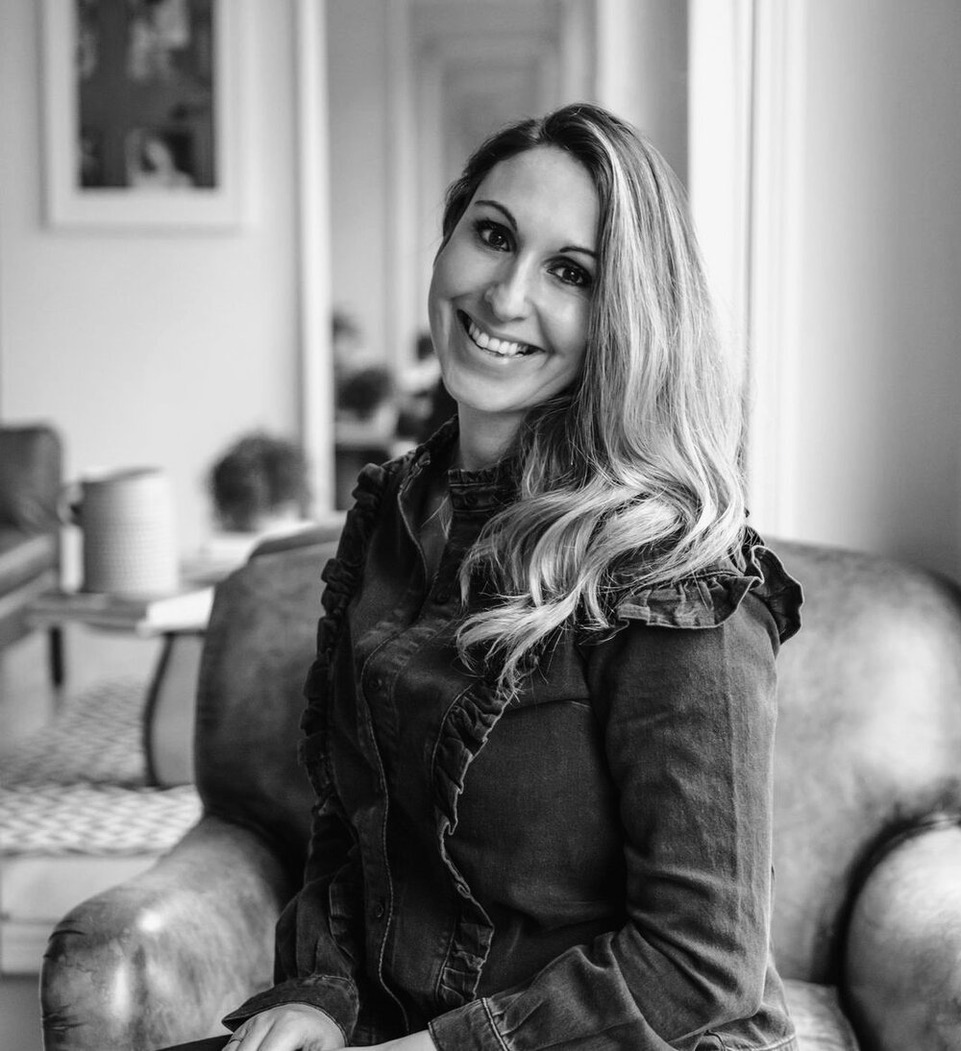How to ace 5 post-lockdown work challenges
Are you starting a new job or motivation gone missing? Elaine Carnegie, founder of workplace wellbeing consultancy Being Works, has definitely got this


Celebrity news, beauty, fashion advice, and fascinating features, delivered straight to your inbox!
You are now subscribed
Your newsletter sign-up was successful
Are you starting a new job or motivation gone missing? Elaine Carnegie, founder of workplace wellbeing consultancy Being Works, has definitely got this
Hands up if you’re feeling a bit weird about the idea of new work challenges and life returning to some kind of normality? You’d be forgiven for a lack of enthusiasm. While some of us can’t wait to be around colleagues again, many more have found a year living with the impact of a health pandemic has left us feeling a bit ‘meh’ about everything. According to the New York Times that feeling of stagnation and emptiness as we muddle through our days is called ‘languishing’, and we can relate.
It could be due, at least in part, to the disengagement we feel after months of working from home. According to research by Microsoft, Gen-Zers reported difficulties feeling engaged or excited about work because of this.
Whatever the case, if you’re heading back into the workplace – or entering it for the first time – you need to get yourself in the right headspace to cope with the rush of feelings this may well entail. Says Elaine Carnegie, founder of workplace wellbeing consultancy Being Works. “Re-entry anxiety is a thing! It’s the fear of being unable to adapt to previously established routines. So it’s OK to feel everything you are feeling right now”. Here is Elaine’s advice for getting through the first few weird weeks.

1. If you were onboarded virtually
Being recruited during lockdown makes facing your colleagues IRL a unique challenge. “First-day nerves will have been postponed and in some ways completely heightened,” says Carnegie. While you may have been feeling like an ‘outsider’ because you haven’t met your colleagues face to face, don’t assume that everyone else has maintained solid connections throughout the pandemic. “Many workplaces will be putting plans in place to support those onboarded virtually. Recognise what you need to feel more safe and secure and ask for it. Be honest with your manager and reach out for help if you need to and don’t be afraid to ask questions about the workplace culture,” says Carnegie.
2. After having a baby in lockdown
Many have found bringing a new baby into the world during the pandemic incredibly challenging, even traumatic, which may make the return to work particularly hard. “A loss of confidence post-maternity leave is common anyway, so factor in the pandemic and you may find your confidence is very low to start with. Manage your expectations with self-compassion, taking the time to reignite your connection with your colleagues and role,” says Carnegie. Practical aspects like childcare and separation anxiety may prove disruptive as you get used to the new reality, so make sure you are open with your employer as you navigate your return to work. And find out if a hybrid working pattern might be doable.
3. If you've lost your motivation
That disengagement you feel is hardly surprising. “Forging relationships, building rapport and navigating social cues isn’t easy to do through a screen,” says Carnegie, while a lack of goals or incentives may have left you feeling uninterested in the projects that used to fire you up. “Accept that this current state won’t last - it just needs a little nudge in the right direction by reconnecting with colleagues that bring out the best in you”. One thing that really boosts motivation is dopamine, which requires enough sleep, a good diet (watch sugar levels) and managing your stress through meditation and deep breathing. ”Instead of going into denial, identify with how you’re really feeling, surround yourself with people that motivate you and celebrate the small wins together,” says Carnegie.
Celebrity news, beauty, fashion advice, and fascinating features, delivered straight to your inbox!
4. If your confidence is shot
More than half Gen Z say they now feel less confident in their own skin, a survey by Skin Proud has revealed. Staring at ourselves on Zoom for hours each day has probably not helped. On top of this comes a loss of confidence in our ability to do our jobs, due to all those months without the usual markers of success, such as validation from clients, boosting chats with line managers and thank-you drinks with the boss. “Acknowledge how you are feeling and re-connect with your strengths, listing your achievements if need be, so you stop focusing on your weaknesses,” says Carnegie. Get support professionally and personally by building your network. “Ask if there is a mentorship programme in your company,” she suggests.
5. If you've got a bout of social anxiety
“Easing of restrictions will be overwhelming for many of us and this is so normal. We’ve been through a collective trauma over the past year so it’s important to acknowledge this and take things slowly. Our resolve and resilience will definitely be depleted,” says Carnegie. Many have found the slower pace of life during lockdown easier so it’s natural to feel apprehensive and anxious about the future and life getting too fast again. “Take these changes at your own pace, building up to where you feel comfortable. And don’t judge yourself during or after you meeting up with others, nor compare yourself to them. It’s very likely they will be feeling a lot too, even if they don’t show it. We’ll all be trying to overcome different social anxieties. Just remember this feeling won’t last forever."
Good luck. You'll be ace!
* Elaine Carnegie is the founder of workplace wellbeing consultancy Being Works
Maria Coole is a contributing editor on Marie Claire.
Hello Marie Claire readers – you have reached your daily destination. I really hope you’re enjoying our reads and I'm very interested to know what you shared, liked and didn’t like (gah, it happens) by emailing me at: maria.coole@freelance.ti-media.com
But if you fancy finding out who you’re venting to then let me tell you I’m the one on the team that remembers the Spice Girls the first time round. I confidently predicted they’d be a one-hit wonder in the pages of Bliss magazine where I was deputy editor through the second half of the 90s. Having soundly killed any career ambitions in music journalism I’ve managed to keep myself in glow-boosting moisturisers and theatre tickets with a centuries-spanning career in journalism.
Yes, predating t’internet, when 'I’ll fax you' was grunted down a phone with a cord attached to it; when Glastonbury was still accessible by casually going under or over a flimsy fence; when gatecrashing a Foo Fighters aftershow party was easy-peasy-lemon-squeezy and tapping Dave Grohl on the shoulder was... oh sorry I like to ramble.
Originally born and bred in that there Welsh seaside town kindly given a new lease of life by Gavin & Stacey, I started out as a junior writer for the Girl Guides and eventually earned enough Brownie points to move on and have a blast as deputy editor of Bliss, New Woman and editor of People newspaper magazine. I was on the launch team of Look in 2007 - where I stuck around as deputy editor and acting editor for almost ten years - shaping a magazine and website at the forefront of body positivity, mental wellbeing and empowering features. More recently, I’ve been Closer executive editor, assistant editor at the Financial Times’s How To Spend It (yes thanks, no probs with that life skill) and now I’m making my inner fangirl’s dream come true by working on this agenda-setting brand, the one that inspired me to become a journalist when Marie Claire launched back in 1988.
I’m a theatre addict, lover of Marvel franchises, most hard cheeses, all types of trees, half-price Itsu, cats, Dr Who, cherry tomatoes, Curly-Wurly, cats, blueberries, cats, boiled eggs, cats, maxi dresses, cats, Adidas shelltops, cats and their kittens. I’ve never knowingly operated any household white goods and once served Ripples as a main course. And finally, always remember what the late great Nora Ephron said, ‘Everything is copy.’
